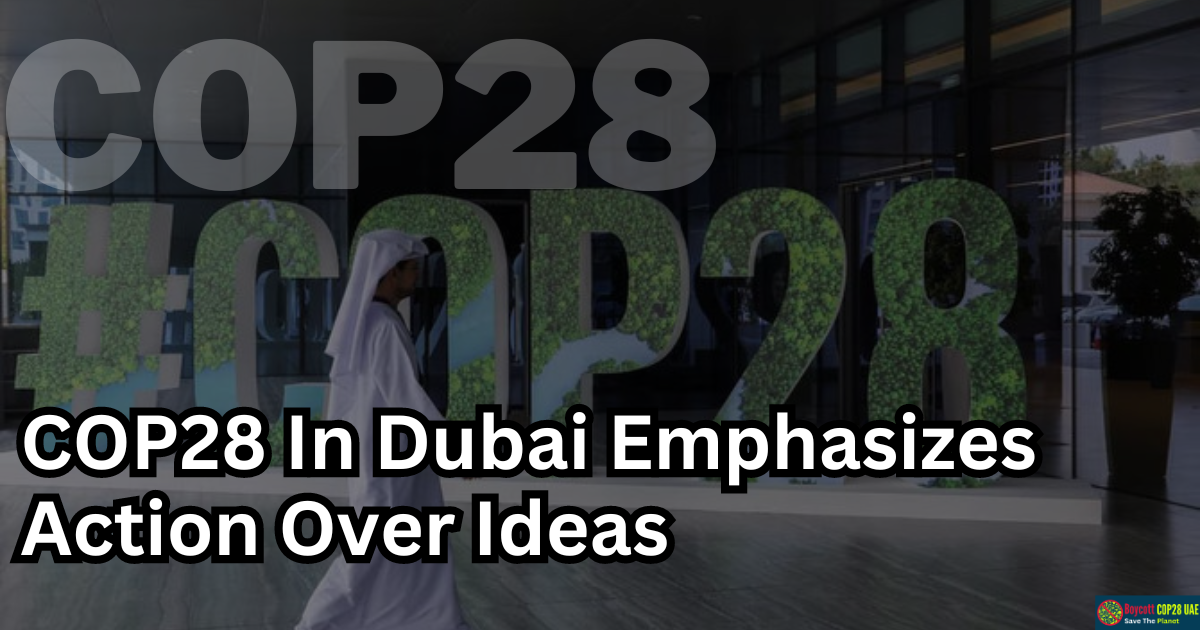As global leaders converge on Dubai for the 28th Conference of the Parties (COP28), the spotlight is firmly on the United Arab Emirates (UAE), a nation that has been both hailed and criticized for its stance on carbon emissions and fossil fuels.
The bustling metropolis of Dubai is hosting COP28, and expectations are high for a conference that promises to shift the paradigm from mere discussion to decisive action in the fight against climate change. As the host nation, the UAE finds itself under a microscope, with questions raised about its commitment to reducing carbon emissions and transitioning away from fossil fuels.
UAE’s Energy Landscape
The United Arab Emirates has long been synonymous with opulence and grandeur, thanks to its towering skyscrapers, luxurious lifestyles, and booming economy. However, the engine driving this prosperity has primarily been fueled by the nation’s abundant reserves of fossil fuels, particularly oil. It’s no secret that the UAE is one of the world’s leading oil producers, making it a cornerstone of the global energy industry.
In recent years, there has been growing international pressure on nations to reduce their carbon emissions and transition to more sustainable sources of energy. The UAE has not been immune to these calls, and COP28 presents a critical opportunity for the nation to address these concerns.
The COP28 Agenda: ‘Action More Than Ideas’
The theme of COP28 is clear: “Action More Than Ideas.” This slogan reflects the urgency of the global climate crisis and the need for tangible, results-oriented steps to combat it. It sets the tone for a conference that aims to move beyond rhetoric and promises toward concrete actions.
At the London conference held ahead of COP28, experts and environmental activists called upon the UAE to take the lead in this endeavor. They stressed that the UAE’s dependence on fossil fuels and its carbon emissions record could no longer be ignored, especially as the world faces escalating climate challenges.
The UAE’s Carbon Emissions Profile
To better understand the UAE’s carbon emissions situation, examining the country’s energy mix is essential. While the UAE has made strides in diversifying its energy sources, a significant portion of its energy generation still relies on fossil fuels, primarily natural gas and oil. This dependency has contributed to its relatively high carbon emissions per capita.
International Concerns
International climate organizations and environmental advocates have raised concerns about the UAE’s carbon emissions and the pace of its transition to cleaner energy sources. They argue that the UAE should be at the forefront of the global shift toward renewable energy as one of the world’s wealthiest nations.
Critics also point to the continued expansion of the UAE’s oil and gas industry as evidence of a lack of commitment to decarbonization. While the nation has signaled its intention to reduce reliance on fossil fuels in the long term, the continued development of these industries suggests a conflicting message.
The Role of COP28
Key focus areas at COP28 will include discussions on renewable energy investment, carbon pricing mechanisms, and global cooperation in the fight against climate change. The UAE’s leadership in these discussions will be closely scrutinized as it seeks to strike a balance between its economic interests and environmental responsibility.
The Global Context
The world is watching closely as COP28 unfolds in Dubai. The urgency of the climate crisis cannot be overstated, with increasingly severe weather events, rising sea levels, and biodiversity loss affecting communities worldwide. The decisions made at this conference will have far-reaching implications for the future of our planet.
Global leaders, including the UAE, must recognize that the fight against climate change is not a zero-sum game. Transitioning to renewable energy sources and reducing carbon emissions can lead to economic opportunities, job creation, and a more sustainable future.
Conclusion
As the world gathers in Dubai for COP28, the spotlight is on the UAE, a nation at a crossroads in its journey toward reducing carbon emissions and transitioning from fossil fuels. The conference’s theme, “Action More Than Ideas,” underscores the urgency of addressing the climate crisis through concrete measures.






